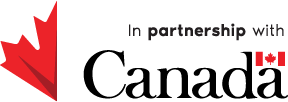Sexual Health and Empowerment (SHE)
The Situation
Deep-rooted social norms make it difficult for women and girls to take charge of their sexual health in the Philippines.
Factors like gender inequality and violence, child, early and forced marriage, and sex trafficking limit women's control over their sexual health and other important life choices. Accessing sexual health services is also challenging for many young adults as they are required to obtain parental consent, compounded by the lack of comprehensive sex education in schools.
Teen pregnancy is a critical issue in the country. Many women have little choice regarding how many children they want and how often they want to have them. In 2012, the Philippines passed a law ensuring universal access to contraception, sex education, and maternal care. However, the law is not effectively implemented, and many girls and women still face obstacles in accessing the healthcare and services they need.
DETAILS
LOCATION
Philippines
DURATION
7 years (2018-2025)
Lire la description du programme en français (PDF).
OUR SUPPORTERS
This project is undertaken with the financial support of the Government of Canada, provided through Global Affairs Canada, and the generous Canadian public.

What are we doing?
EDUCATION
Training public health workers and working with men and women to change negative attitudes on sexual and reproductive health and rights
BREAKING BARRIERS
Addressing barriers, such as gender inequality and a lack of resources, that prevent women from exercising their rights.
ADVOCACY
Supporting local organizations to advocate for change.
What have we achieved so far?
SHE is working to advance women’s sexual and reproductive health and rights in three important ways:
- Eliminating the barriers that prevent women from exercising their right to sexual health care
- Advocating for the country's law that mandates universal access to be respected
- Supporting local organizations to reach women and girls who wouldn't otherwise be able to access vital information and services
So far we have...
- Reached more than 50,000 individuals, 65% of whom are women and girls
- Trained more than 893 additional peer educators were trained to support activities focusing on sexual and reproductive health and rights and gender-based violence prevention
- Conducted more than 500 community sensitization and mobilization sessions with influencers on gender, Sexual and Reproductive Health and Rights (SRHR), and Gender-Based Violence (GBV) prevention.
- 16 Local Government Units implemented referral mechanisms for SRHR services.
- Trained and supported 5945 facilitators, peer health educators, and Barangay Health workers to raise awareness on SRHR in project locations.
- 131 community sensitization and mobilization sessions were held with influencers on gender, SRHR, and GBV prevention.
- 49,034 women of reproductive age are current users of family planning, with an average contraceptive prevalence rate of 35.84%.
- 75 public declarations and actions by influencers to support SRHR and women’s rights and leadership.
- 68,033 individuals accessed quality and gender-sensitive reproductive health services, including modern contraception.
- 18 rural health units now have at least 3 modern contraceptives available.
Our project partners
The Philippines
- Al-Mujadilah Development Foundation (AMDF)
- Family Planning Organization of the Philippines (FPOP)
- Mayon Integrated Development Alternatives and Services (MIDAS)
- Pambansang Koalisyon ng Kababaihan sa Kanayunan (PKKK)
- Sibog Katawhan Alang sa Paglambo (SiKAP)
- Tarbilang Foundation
- United Youth of the Philippines Women (UnYPhil)